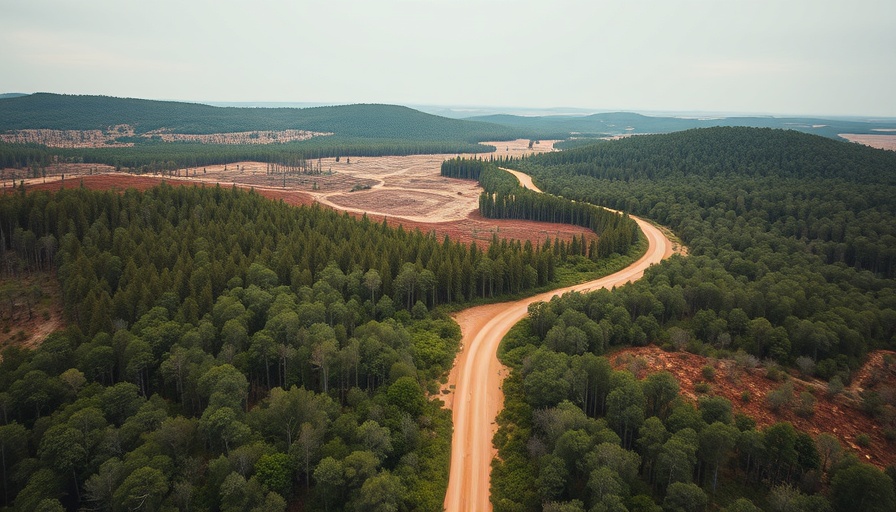
Canada's National Development and Indigenous Rights in Conflict
As Prime Minister Mark Carney champions a national initiative dubbed “Build, baby, build,” aimed at transforming Canada's economy, he is facing a significant challenge from Indigenous groups across the nation. These groups are demanding a voice in decisions that impact their ancestral lands, highlighting a growing recognition of Indigenous rights and a need for dialogue in the wake of decades of marginalization.
The Irony of National Strengthening
Carney's ambitious plan, which includes constructing pipelines, nuclear facilities, and port expansions, is framed as a method to make Canada less reliant on the United States, fostering a self-sufficient energy superpower. However, these projects have sparked strong reactions from Indigenous leaders, who argue that true national strength cannot be built on the dismissal of their rights. Dave Petiquay, a respected leader from the Atikamekw community, emphasizes that their voices must not be overlooked: “It’s up to governments to come and see us about decisions concerning our territory.” This plea reflects the sentiment that reconciliation must accompany development.
Historical Context: The Legacy of Exclusion
Canada's past is marred by a history of overlooking Indigenous perspectives during nation-building efforts. The construction of infrastructure has often violated the land rights of Indigenous peoples, leading to broken treaties and the erosion of traditional lifestyles. As such, the current pushback against Carney's initiatives is not merely a local dispute but a significant moment of reckoning in Canada's history. Many leaders are citing the need for a new paradigm that includes Indigenous consultation and consent before any projects proceed.
Future Predictions: Navigating the Development Landscape
The dynamics of these negotiations could reshape the landscape of Canadian governance and resource management. Should the government heed Indigenous calls for involvement, it could lead to a model of shared decision-making that harmonizes economic growth with respect for Indigenous rights. However, failure to engage meaningfully may hinder these projects, leading to protests and legal challenges that could stall development timelines significantly.
Indigenous Voices Matter: Shared Governance as a Path Forward
There is a compelling case for shared governance models where Indigenous communities are involved not only as stakeholders but as leaders in development decisions. By incorporating Indigenous knowledge systems and perspectives into the planning stages, Canada could foster more sustainable and responsible projects. This method would not only benefit Indigenous peoples but also enhance Canada's global standing as a nation committed to human rights.
Practical Insights: Lessons Learned from Other Regions
Other nations have employed inclusive strategies to overcome similar challenges. Countries like New Zealand and Australia have seen substantial benefits from involving Indigenous populations in environmental management and resource extraction. Their experiences indicate that when Indigenous rights are respected and integrated into national projects, both environmental and social outcomes improve.
Call to Action: The Importance of Inclusive Governance
The path forward requires action from all sides: the government must actively engage with Indigenous groups, and these communities should be provided with platforms to express their concerns and aspirations. This cooperative approach could transform potential conflict into a collaborative evolution toward a shared future in which every party's contribution is valued. For Canada's future, embracing these changes is not just necessary; it’s imperative. In a rapidly globalizing world, it’s time for Canada to lead by example, showcasing a model of governance that prioritizes dialogue, respect, and reconciliation above all else.
 Add Row
Add Row  Add
Add 




 Add Row
Add Row  Add
Add 

Write A Comment